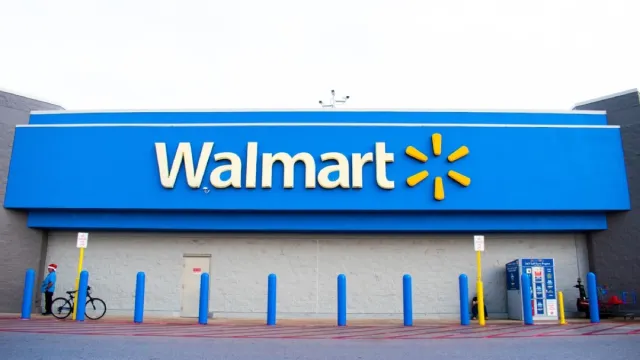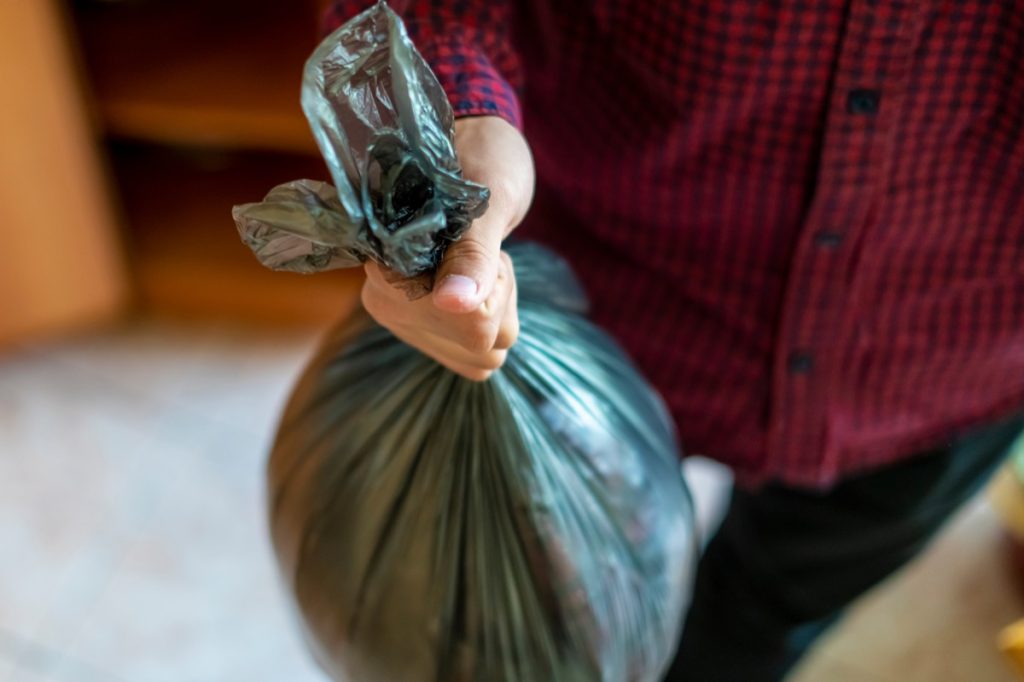Granola Bars Sold at Walmart Recalled Due to Possible Listeria, FDA Warns

Even if you’re a fantastic home cook, having snacks like granola bars in your pantry is still essential. The grab-and-go items are an easy way to stave off hunger in between meals or work as a quick option for breakfasts or lunches on the go. Usually, the only thought that goes into them is picking your favorite flavor or brand from the shelf. But now, the Food & Drug Administration (FDA) is warning that granola bars sold at Walmart have been recalled. Read on to learn more about the potential health risk the popular treats could pose.
READ THIS NEXT: Popcorn Sold In 9 States Recalled Over Health Concerns, FDA Warns.
Granola bars sold at Walmart were just recalled.

On March 15, the FDA announced that New Jersey-based Clio Snacks had recalled its Strawberry Granola & Greek Yogurt Parfait Bar. The move affects 581 cases of the product.
The agency says the item was shipped to Walmart stores between March 5 and March 8 of this year. The affected product is packaged in a single-serving box with the UPC 854021008152 and an expiration date of 4/30/2023 stamped on its side. The bars are also printed with lot number 048C2023 on their wrapper.
The company pulled the product over potential Listeria contamination.

According to the agency’s notice, the company pulled the product because it could possibly be contaminated with Listeria monocytogenes. Clio Snacks said it discovered the issue during routine testing at a facility that produces the snack bars. The company clarified that no other items in its lineup are affected by the recall.
“The third-party manufacturer has ceased production and Clio has ceased distribution of the affected product while the FDA and the company continue their investigation into what caused the problem,” the company wrote in the announcement.
The agency warns that the harmful bacteria can cause short-term symptoms in healthy people, including high fever, severe headache, stiffness, nausea, abdominal pain, and diarrhea. But it can also cause “serious and sometimes fatal infections” in young children, the elderly, and those who are immunocompromised, and lead to miscarriages in stillbirths for those who are pregnant.
RELATED: For more up-to-date information, sign up for our daily newsletter.
Here’s what you should do if you purchased the recalled granola bars.

The FDA says that there have so far been no illnesses reported related to the recalled granola bars. However, it advises anyone who may have purchased the product not to consume them and to instead “destroy” it immediately or return them to the store where they were originally purchased for a full refund. Customers with questions about the recalled item can also contact the company by calling a hotline on the notice.
There have been other recent recalls over health and safety concerns.

This isn’t the first time recently that companies have recalled food or beverage items over possible risks they could pose to the public. On Feb. 26, the FDA announced that Kawasho Foods USA had voluntarily recalled cans of its Geisha Medium Shrimp sold in 4-ounce cans. The affected product was distributed to major grocery chains across four states, including Walmart, Associated Foods, Stater Bros Markets, Safeway, and Albertsons. The company issued the recall after discovering some cans were “swelling, leaking, or bursting,” indicating that the product could be underprocessed and lead to “the potential for spoilage organisms or pathogens.”
The agency issued another announcement on Feb. 24. This time, California-based Jan Fruits Inc. recalled all cases of its enoki mushrooms in 200g/7.05oz packages distributed to retailers in California and Hawaii. Similar to the Clio recall, the company said that routine sampling conducted by Hawaiian officials discovered that the product could be contaminated with Listeria monocytogenes. Customers were advised to return the item to its place of purchase for a full refund.
And on March 4, the U.S. Department of Agriculture’s (USDA) Food Safety and Inspection Service (FSIS) announced that GH Foods NW, LLC issued a recall for its Trader Joe’s Lemon Chicken & Arugula Salad it produces for the beloved grocery store chain. In this case, the agency said the company decided to pull the product from the grocer’s shelves “due to misbranding and undeclared allergens.” A labeling error meant that affected items didn’t alert customers that the ready-to-eat item contained wheat, which is a known food allergen. FSIS advised customers who purchased the product not to consume it and to return it to its place of purchase for a full refund.